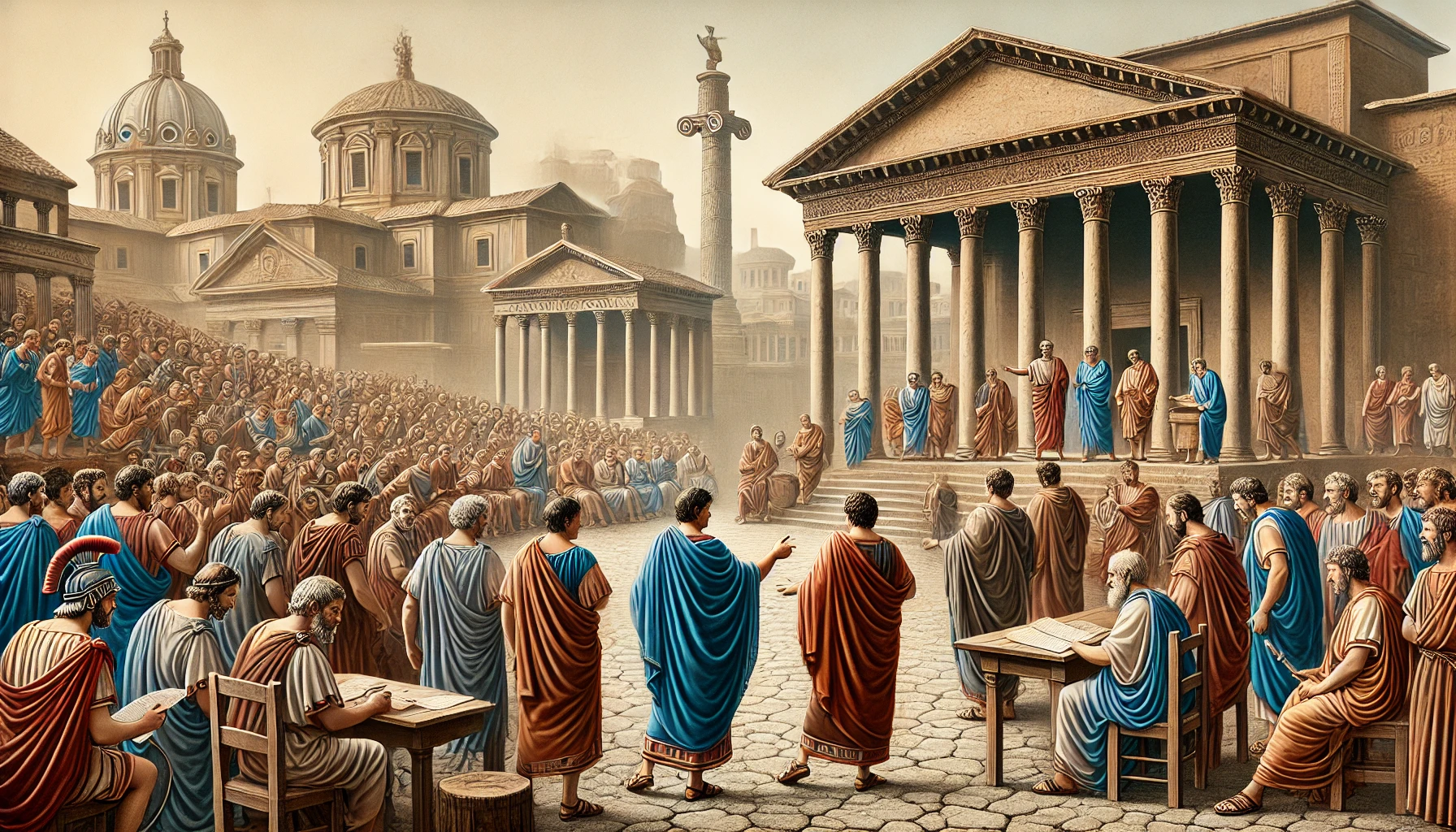A New Legal System for a Growing Republic
By the 5th century BCE, Rome had transitioned from a monarchy to a fledgling Republic, but tensions between the ruling patricians and the common plebeians threatened its stability. The plebeians, who had few legal protections, demanded a codified set of laws to prevent the abuse of power by the elite. This demand led to the creation of the Twelve Tables, the first written legislation in Roman history.
The Creation of the Twelve Tables
In 451 BCE, a commission of ten men, known as the Decemviri, was appointed to draft a comprehensive set of laws. The first ten tables were completed in 450 BCE, and two additional tables were added in 449 BCE. These laws, inscribed on bronze tablets, were displayed in the Roman Forum, ensuring that all citizens—both patrician and plebeian—knew their rights and responsibilities.
Key Provisions of the Twelve Tables
The Twelve Tables covered various aspects of Roman life, including property rights, family law, criminal offenses, and legal procedures. Some notable provisions included:
- Equality Before the Law: The laws applied to all Roman citizens, though distinctions remained between classes.
- Property Rights: Rules governing land ownership, inheritance, and debt were clearly outlined.
- Legal Procedures: Citizens had the right to a trial and could present evidence in disputes.
- Punishments: Crimes such as theft, assault, and treason carried strict penalties, including execution in severe cases.
The Impact of the Twelve Tables
Although the Twelve Tables were eventually replaced by more advanced legal codes, they established the principle that laws should be written and accessible to all. This concept influenced later Roman law and, ultimately, legal traditions in Europe and beyond.
A Lasting Legacy
The Twelve Tables laid the groundwork for Roman jurisprudence and the legal systems that followed. Their creation marked a significant step toward a more just society, ensuring that the rule of law, rather than the whims of the elite, governed Roman citizens. The influence of this ancient legal code can still be seen in modern law today.






